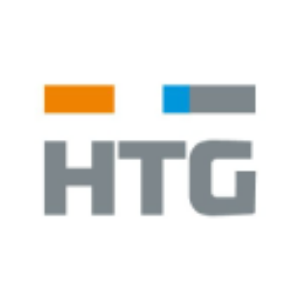HTG Announces Recipients of Its 2020 HTG EdgeSeq Autoimmune Panel Research Grants
HTG Molecular Diagnostics (Nasdaq: HTGM) announced the recipients of its 2020 HTG EdgeSeq Autoimmune Panel Research Grants, Dr. Vinodh Pillai and Dr. Thomas Dörner. Dr. Pillai's research focuses on Castleman Disease biomarkers, while Dr. Dörner investigates immune pathways in systemic lupus erythematosus (SLE). HTG provides VERI/O services for their research, aiming to enhance treatment options for autoimmune disorders. The company emphasizes the potential of its HTG EdgeSeq technology in precision medicine, although future advancements are uncertain and involve inherent risks.
- HTG awarded research grants to two reputable doctors, enhancing its credibility.
- Dr. Pillai's and Dr. Dörner's projects could lead to significant advancements in treatment options for autoimmune diseases.
- Future advancements and the performance of HTG's technology are uncertain, which may affect the company's reputation and growth.
TUCSON, Ariz., July 23, 2020 (GLOBE NEWSWIRE) -- HTG Molecular Diagnostics, Inc. (Nasdaq: HTGM) (HTG), a life science company whose mission is to advance precision medicine, today announced Vinodh Pillai, M.D., Ph.D., Assistant Professor of Pathology and Laboratory Medicine at the Children’s Hospital of Philadelphia, and Thomas Dörner, MD, Professor of Rheumatology and Hemostaseology at Charité University Hospitals, Berlin, as award recipients of its 2020 HTG EdgeSeq Autoimmune Panel Research Grants.
“We congratulate Dr. Pillai and Dr. Dörner for being the recipients of our 2020 HTG EdgeSeq Autoimmune Panel Research Grants and are pleased to provide these recipients with the grant of VERI/O services for use of the HTG EdgeSeq Autoimmune Panel in their research,” said Byron Lawson, Senior Vice President and Chief Commercial Officer. “Their exciting work represents cutting edge examples of researchers using our HTG EdgeSeq Autoimmune Panel to help characterize immune dysfunction. We believe their work ultimately will lead to important advancements in autoimmune disorders and may lead to the development of more treatment options for individuals with Castleman Disease and lupus. We look forward to seeing their scientific findings published in future peer-reviewed journals.”
Dr. Pillai was awarded the grant for his research, Autoimmune Basis of Castleman Disease, which examines important questions in this rare disease, with limited sample material, in the areas of novel biomarkers for diagnostics and classification and potential novel therapeutic targets.
Dr. Dörner was awarded the grant for his research, Alterations of key immune pathways in distinct B-cell subsets of patients with systemic lupus erythematosus (SLE), which is intended to identify key pathways and possible biomarkers and therapeutic targets in different B-cell subsets, ultimately helping to refine the understanding of the role and relevance of different B-cell populations in SLE patients.
About HTG
HTG is focused on NGS-based molecular profiling. The company’s proprietary HTG EdgeSeq technology automates complex, highly multiplexed molecular profiling from solid and liquid samples, even when limited in amount. HTG’s customers use its technology to identify biomarkers important for precision medicine, to understand the clinical relevance of these discoveries, and ultimately to identify treatment options. Its mission is to empower precision medicine.
Safe Harbor Statement
Statements contained in this press release regarding matters that are not historical facts are “forward-looking statements” within the meaning of the Private Securities Litigation Reform Act of 1995, including statements regarding the work of the researchers named in this press release leading to important advancement in autoimmune disorders and potential future peer-reviewed publications. Words such as “believes,” “anticipates,” “plans,” “expects,” “intends,” “will,” “goal,” “potential” and similar expressions are intended to identify forward-looking statements, although not all forward-looking statements necessarily contain these identifying words. These forward-looking statements are based upon management’s current expectations, are subject to known and unknown risks, and involve assumptions that may never materialize or may prove to be incorrect. Actual results and the timing of events could differ materially from those anticipated in such forward-looking statements as a result of various risks and uncertainties, including but not limited to, the ability of our technology to enable scientists to offer more effective diagnosis and treatment options to individuals impacted by autoimmune disorders and the risk that our technology does not perform as expected. These and other factors are described in greater detail in our filings with the Securities and Exchange Commission, including without limitation our Quarterly Report on Form 10-Q for the quarter ended March 31, 2020. All forward-looking statements contained in this press release speak only as of the date on which they were made, and we undertake no obligation to update such statements to reflect events that occur or circumstances that exist after the date on which they were made.
Ashley R. Robinson
LifeSci Advisors, LLC
Phone: (617) 430-7577
Email: arr@lifesciadvisors.com
FAQ
What are the details of the HTG research grants announced in July 2020?
What is the significance of HTG EdgeSeq technology?
Who are the recipients of HTG's 2020 Autoimmune Panel Research Grants?
What research focus does Dr. Pillai have regarding Castleman Disease?







